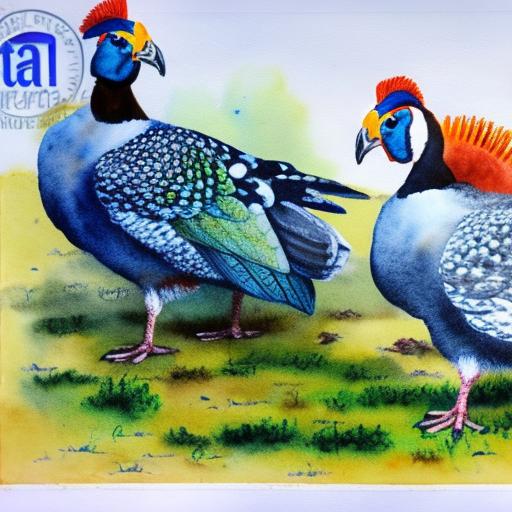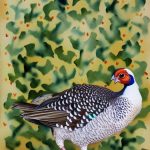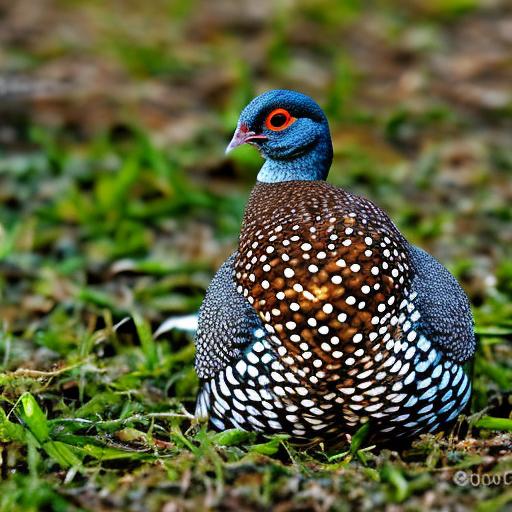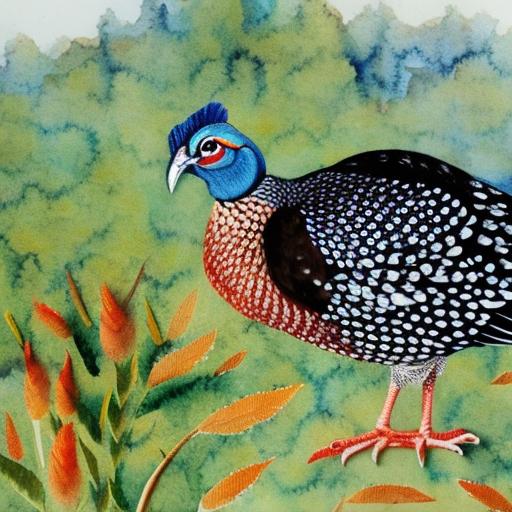Guinea fowl breeding season is an exciting time for poultry enthusiasts. These unique birds are known for their striking appearance and distinctive calls, making them a popular choice for farmers and hobbyists alike. The breeding season typically occurs in the spring and summer months when the weather is warmer and food sources are plentiful. During this time, guinea fowl engage in courtship rituals, mate, and lay eggs, leading to the hatching of new keets (baby guinea fowl). Understanding the breeding behavior of guinea fowl, as well as the factors that can affect their breeding season, is essential for successful breeding and raising healthy keets.
Key Takeaways
- Guinea fowl breeding season typically occurs in the spring and early summer, when the days are longer and the weather is warmer.
- Guinea fowl are known for their unique breeding behavior, including loud calls, elaborate courtship displays, and communal nesting habits.
- Factors such as daylight length, temperature, and nutrition can affect the timing and success of guinea fowl breeding season.
- Before the breeding season, it’s important to provide guinea fowl with proper housing, nesting areas, and a balanced diet to ensure successful breeding.
- During the breeding season, it’s crucial to monitor the health and behavior of guinea fowl, provide adequate nesting materials, and protect them from predators to ensure successful breeding.
Understanding the Breeding Behavior of Guinea Fowl
Guinea fowl are known for their unique breeding behavior, which includes elaborate courtship displays and vocalizations. During the breeding season, male guinea fowl will often display their vibrant plumage and perform intricate dances to attract a mate. These displays can include puffing up their feathers, strutting, and making loud calls to signal their readiness to breed. Once a male has successfully courted a female, they will mate, and the female will begin to lay eggs in a secluded nest. Guinea fowl are known for their strong maternal instincts, and the female will diligently incubate her eggs for about 26-28 days before they hatch. Once the keets hatch, they are precocial, meaning they are born with their eyes open and are able to walk and feed themselves shortly after hatching. Understanding these natural behaviors is crucial for breeders to provide the appropriate environment and care for their guinea fowl during the breeding season.
Factors Affecting Guinea Fowl Breeding Season
Several factors can affect the breeding season of guinea fowl, including environmental conditions, nutrition, and the age and health of the birds. Guinea fowl are sensitive to changes in daylight hours, and the lengthening days of spring can trigger their breeding instincts. Additionally, temperature and weather conditions play a significant role in the success of breeding season, as extreme heat or cold can impact egg production and hatch rates. Nutrition is also crucial during the breeding season, as guinea fowl require a balanced diet rich in protein and essential nutrients to support egg production and healthy keet development. Breeding age and overall health of the birds are also important factors to consider, as older or unhealthy birds may have reduced fertility and breeding success. By understanding these factors, breeders can take proactive measures to optimize the conditions for successful guinea fowl breeding.
Preparing for Guinea Fowl Breeding Season
Preparing for guinea fowl breeding season involves creating a suitable environment for breeding, ensuring proper nutrition, and selecting healthy breeding stock. Providing a secure and secluded nesting area is essential for guinea fowl to feel safe and comfortable laying their eggs. This can be achieved by offering nesting boxes or secluded areas with ample bedding to encourage nesting behavior. Additionally, ensuring that guinea fowl have access to a high-quality diet is crucial for successful breeding. A diet rich in protein, vitamins, and minerals will support egg production and the health of both the breeding pair and their offspring. Selecting healthy breeding stock is also important, as birds that are in good condition and free from disease will have a higher likelihood of successful breeding. By taking these preparatory steps, breeders can create an optimal environment for guinea fowl breeding season.
Caring for Guinea Fowl During Breeding Season
Caring for guinea fowl during the breeding season involves monitoring their behavior, providing supplemental nutrition, and ensuring proper nesting conditions. Observing the courtship behavior of guinea fowl can provide valuable insights into their breeding readiness and potential mating pairs. Additionally, providing supplemental nutrition such as mealworms or high-protein feed can support the increased energy demands of breeding guinea fowl. Ensuring that nesting areas are clean, dry, and secluded will encourage successful egg laying and incubation. It is also important to monitor the health of the breeding pair and address any signs of illness or injury promptly to ensure successful breeding outcomes. By providing attentive care during the breeding season, breeders can support the health and well-being of their guinea fowl and increase the likelihood of successful breeding.
Common Challenges During Guinea Fowl Breeding Season

Despite careful preparation and attentive care, breeders may encounter common challenges during guinea fowl breeding season. Predation is a significant concern during this time, as nesting guinea fowl are vulnerable to predators such as foxes, raccoons, and birds of prey. Providing secure housing and implementing predator deterrents can help protect nesting guinea fowl from harm. Another challenge is managing aggressive behavior between mating pairs or competing males, which can lead to injuries or disrupted breeding activities. Separating aggressive individuals or providing ample space can help mitigate these issues. Additionally, inclement weather or environmental stressors such as excessive heat or cold can impact egg production and hatch rates. By being aware of these potential challenges, breeders can take proactive measures to address them and support successful guinea fowl breeding outcomes.
Conclusion and Tips for Successful Guinea Fowl Breeding
In conclusion, guinea fowl breeding season is an exciting time that requires careful attention to the natural behaviors of these unique birds. Understanding their courtship rituals, mating behaviors, and nesting instincts is essential for successful breeding outcomes. Factors such as environmental conditions, nutrition, and bird health can impact the success of guinea fowl breeding season, making proactive preparation crucial for breeders. By providing a suitable environment, attentive care, and addressing common challenges, breeders can increase the likelihood of successful guinea fowl breeding. Additionally, selecting healthy breeding stock and monitoring their behavior can contribute to positive breeding outcomes. With proper preparation and care, breeders can enjoy the rewards of raising healthy keets and contributing to the preservation of these fascinating birds.
As the guinea fowl breeding season approaches, it’s essential to ensure that your coop is well-equipped to support the needs of these unique birds. To create a comfortable and functional space for your guinea fowl, consider implementing some innovative interior ideas for your chicken coop. This article on chicken coop interior ideas provides valuable insights and inspiration for optimizing your coop’s layout and features to accommodate the specific requirements of guinea fowl during their breeding season.
FAQs
What is the breeding season for guinea fowl?
The breeding season for guinea fowl typically occurs in the spring and summer months, starting around April and lasting through August.
At what age do guinea fowl start breeding?
Guinea fowl typically reach sexual maturity and start breeding at around 6 to 8 months of age.
How do guinea fowl breed?
Guinea fowl are monogamous birds, with the male and female forming a pair bond during the breeding season. The male will display courtship behavior, such as puffing up his feathers and vocalizing, to attract a mate.
How many eggs do guinea fowl lay during the breeding season?
During the breeding season, a female guinea fowl can lay anywhere from 30 to 40 eggs, with each egg being laid every 1 to 2 days.
How long does it take for guinea fowl eggs to hatch?
Guinea fowl eggs typically take around 26 to 28 days to hatch once they have been laid.
What should be considered when breeding guinea fowl?
When breeding guinea fowl, it is important to provide a suitable nesting area, proper nutrition, and protection from predators. Additionally, it is important to monitor the health and well-being of the birds during the breeding season.
Meet Walter, the feathered-friend fanatic of Florida! Nestled in the sunshine state, Walter struts through life with his feathered companions, clucking his way to happiness. With a coop that’s fancier than a five-star hotel, he’s the Don Juan of the chicken world. When he’s not teaching his hens to do the cha-cha, you’ll find him in a heated debate with his prized rooster, Sir Clucks-a-Lot. Walter’s poultry passion is no yolk; he’s the sunny-side-up guy you never knew you needed in your flock of friends!







